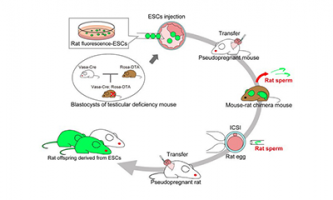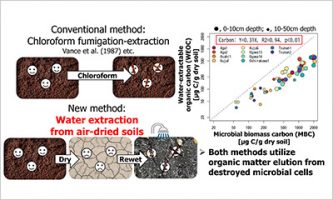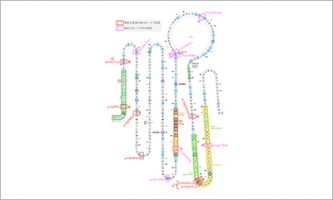Development of New Therapeutic Agent for Lethal and Severe Cutaneous Drug Reaction: Spatial Proteomics elucidates the pathology of Toxic Epidermal Necrolysis and Effectiveness of JAK Inhibitors
Nov 07 2024
An international collaborative research group consisting of Professor HASEGAWA Akito and Professor ABE Riichiro of the Department of Dermatology, Niigata University Graduate School of Medical and Dental Sciences, and Professor Matthias Mann of the Max Planck Institute for Biochemistry (MPIB) in Germany, has developed a novel treatment that improves the outcome for patients with toxic epidermal necrolysis (TEN), a severe cutaneous drug reaction.
TEN is a severe adverse drug reaction; patients have very poor prognosis with a mortality rate of 30 percent. Using spatial proteomics1, a state-of-the-art research method, our research group discovered that the JAK/STAT pathway2, which causes inflammation, is deeply involved in the pathology of TEN. Seven patients with TEN were treated with a JAK inhibitors3 that inhibits this pathway, and we obtained favorable results. The research was published in Nature on October 16, 2024.
Key points
- TEN is a severe disease with a high mortality rate. Therefore, development of a new, highly effective treatment has been required. The mechanism of the disease is still not fully understood, and elucidating the mechanism has been an important issue.
- Our research group discovered that the JAK/STAT pathway, which causes inflammation, is upregulated in the skin lesion of TEN.
- The JAK inhibitor, a drug that blocks the JAK/STAT pathway, was used in patients with TEN and showed favorable results, indicating that JAK inhibitors may be effective in the treatment of TEN. We expect that JAK inhibitors will improve prognosis of the disease.
[Term explanations]
1.Spatial proteomics
Proteomics is the comprehensive analysis of protein expression in cells and tissues. Spatial proteomics is a method of analysis that combines spatial information on the location of a protein with information on the amount of protein expression from tissue sections.
2.JAK/STAT pathway
Plays a role in transmitting information about inflammation, cell proliferation, and differentiation within cells.
3.JAK inhibitor
A drug that suppresses the function of the JAK/STAT pathway by inhibiting JAK. Currently used to treat a variety of diseases, including atopic dermatitis and rheumatoid arthritis.
Publication Details
Journal: Nature
Title: Spatial proteomics identifies JAKi as treatment for a lethal skin disease
Authors: Thierry M. Nordmann*, Holly Anderton, Akito Hasegawa, Lisa Schweizer, Peng Zhang, Pia-Charlotte Stadler, Ankit Sinha, Andreas Metousis, Florian A. Rosenberger, Maximilian Zwiebel, Takashi K. Satoh, Florian Anzengruber, Maximilian T. Strauss, Maria C. Tanzer, Yuki Saito, Ting Gong, Marvin Thielert, Haruna Kimura, Natasha Silke, Edwin H. Rodriguez, Gaetana Restivo, Hong Ha Nguyen, Annette Gross, Laurence Feldmeyer, Lukas Joerg, Mitchell P. Levesque, Peter J. Murray, Saskia Ingen-Housz- Oro, Andreas Mund, Riichiro Abe, John Silke, Chao Ji*, Lars E. French*, Matthias Mann *
*:corresponding author
Doi: 10.1038/s41586-024-08061-0
More News
-
 Jul 07 2025 Research results
Jul 07 2025 Research resultsFertilizable rat sperm produced in a mouse body by blastocyst complementation
-
 Jun 26 2025 Research results
Jun 26 2025 Research resultsEstimating Microbial Biomass from Air-Dried Soils: A Safer, Scalable Approach ーRevolutionary Technique Estimates Soil Microbial Biomass Using Water-Extractable Organic Matterー
-
 Jun 03 2025 Research results
Jun 03 2025 Research resultsAssociation of rare APOE missense variants with Alzheimer's disease in the Japanese population
